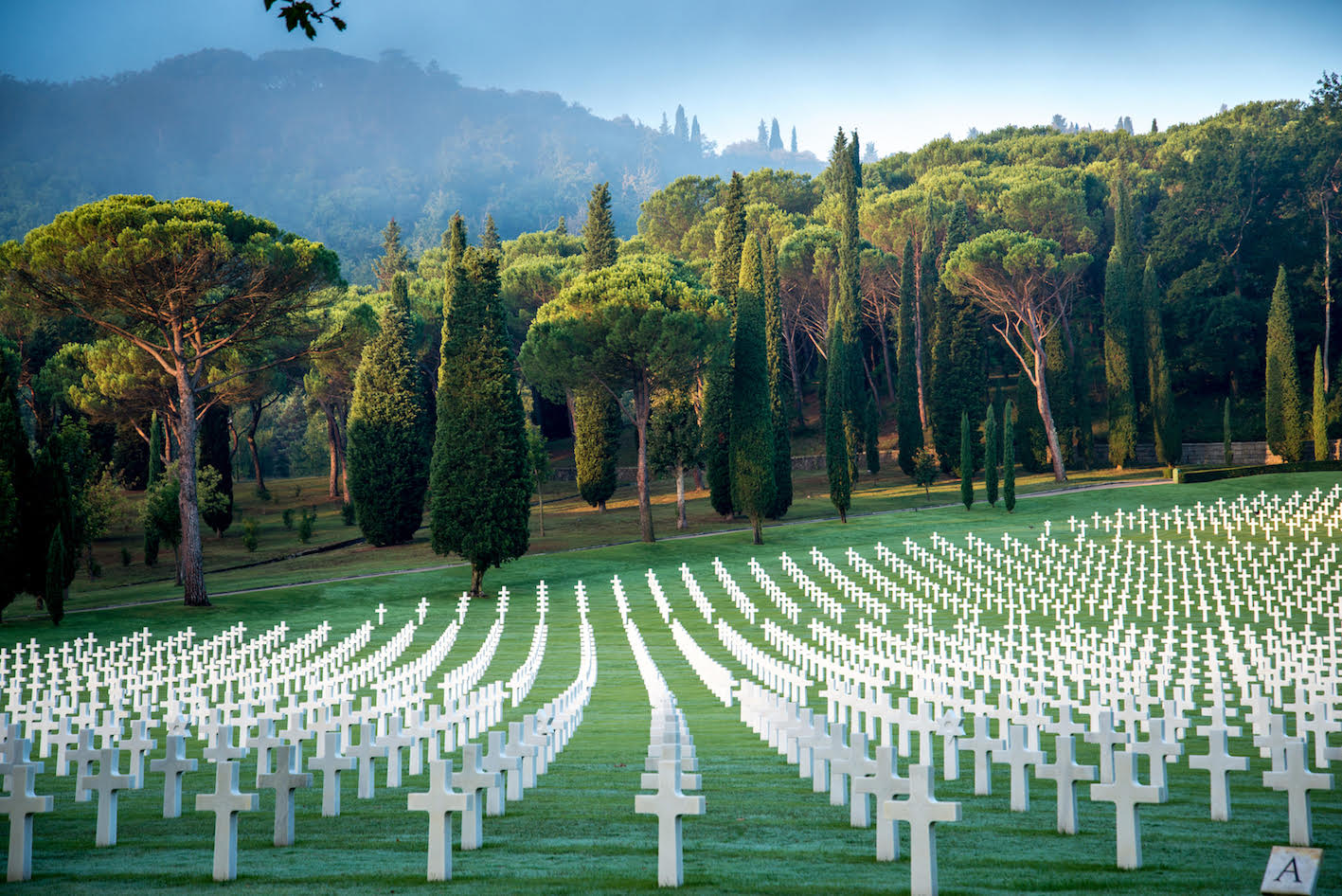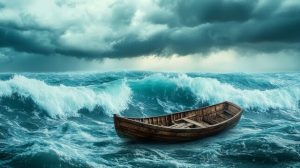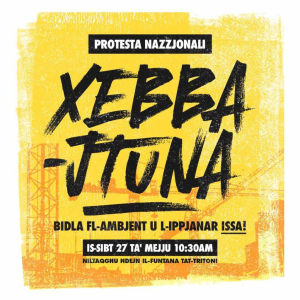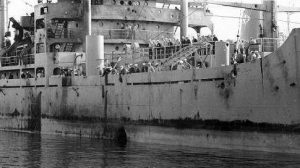1. How does the war in Ukraine truly affect the EU?
We have to build a new European security architecture where the EU and Russia find ways of living together as neighbours without threatening each other’s security. Russia and the West will have to find ways to co-exist regardless of how the conflict in Ukraine is resolved. Is it at all possible to revive the Organization for Security and Cooperation in Europe (OSCE) which is the broadest standing regional forum dealing with matters of European and Eurasian security.
There is terrible war going on in Ukraine because the United States – with the EU following meekly – decided to enlarge NATO to the borders of Russia. Instead of building a new security architecture for Europe within the OSCE after the collapse of the Soviet Union, to look after each country’s security without undermining the security of each country’s neighbour, the United States decided to ignore Russia’s security concern and enlarge NATO.
The war has also left the EU economy weaker, especially Germany with companies leaving for other countries as with the new energy costs, deprived of Russian gas, they have become uncompetitive.
2. Why is there a sudden drive to militarization now? I specifically refer to President Macron’s jingoism.
EU leaders are panicking for at least two reasons: the war against Russia in the Ukraine if not already lost, is certainly not being won. Russia is stronger today with the territorial gains it has made in Ukraine. When negotiations eventually take place it will be in a better bargaining position to strike a deal on its terms.
There is also a very strong possibility that Donald Trump returns to the White House after the November presidential elections in the US. He has already made it clear that the EU will have to look after its security interests more and not continue to depend on the United States.
3. What do you think is really going on? I refer to potentially ulterior motives of the EU leaders. Is this some excuse for a new type of colonization? I refer to the abundance of resources Ukraine has.
The unipolar world dominated by the US is over and a multipolar world is coming into being where new powers like China and India are emerging. The Global South, made up of the majority of the population of the world and of countries that were colonies of Europe do not want the continuation of colonialism by other means. They are rejecting American hegemonism and want to work together for a new global order and institutions that work for them. They want a truly inclusive UN whose security council does not have the power of veto and for a change in the main financial and trade global organizations that to this day continue to reflect an imperialistic order. The global order is not delivering sustainable development for the majority of the world’s population.
With its demographic decline and becoming a smaller part of the world, the EU at best can aspire to be a regional power, but only if it becomes strategically autonomous.
After two years of war Ukraine has lost many of its resources. The richest areas in terms of industrial and agricultural capacity are now under Russian control. It has lost possibly 500,000 killed in the war and over six million Ukrainians have fled their country.
4. Isn’t a better (and more politically detached) supply of arms and provisions sufficient? Why is there a drive to send troops in?
The most sensible thing to do is to find ways of ending the war and start negotiating. It is tragic for Ukraine that when it was on the point of signing an agreement with Russia in April 2022, British Prime Minister Boris Johnson visited Kiev and told President Zelensky to break off negotiations with Russia as the West was not ready to end the war. At that point Russian and Ukrainian negotiators appeared to have tentatively agreed that Russia would withdraw to its position on February 23, when it controlled part of the Donbas region and all of Crimea, and in exchange, Ukraine would promise not to seek NATO membership and instead receive security guarantees from a number of countries.
Since April 2022 Russia is in a stronger position to dictate a new arrangement on its own terms.
5. How would Ukraine’s defeat affect the EU? Would you agree that tensions are very high and a large conflict never been as possible since WW2? Or would you say this could end up being another Cold War? With a situation of the Cuban Missile Crisis but this time in Ukraine.
A number of top American diplomats (Madeleine Albright, George Kennan, Strobe Talbot to mention just a few) warned that expanding NATO to Russia would be the beginning of a new cold war. That has come to pass. We are in a brutal Russia-Ukraine war with no end in sight. It is going to be very difficult to resurrect the spirit of Helsinki that served Europe well in the middle of the Cold War and proved to be a turning point in the easing of tensions between the West and the East.
Our geopolitical environment has become so toxic that simply calling for hostile neighbours to sit together is dismissed as naïve at best and denounced as a betrayal at worst. We might end up with a frozen conflict like in the Korean peninsula where the war subsides but no peace breaks out. This is not good for anyone: EU, Russia and most of all Ukraine.
The same way that more than 60 years ago the United States could not accept a Soviet military base armed with missiles pointing at American cities on its door step in Cuba, Russia is never going to accept NATO bases in Ukraine. How would the US react if all of a sudden Canada and Mexico turn hostile to it and threaten its security?
6. How do you think the predicted triumph of right-wing
parties in MEP elections will affect the situation?
The latest polls carried out by ‘Europe elects’ do not point to any right wing party triumphs in the coming June elections. The polls carried out at the beginning of March give the centre right European People’s Party (EPP) 181 seats, the centre-left Progressive Alliance of Socialists and Democrats (S&D) follows with 140 seats, the centrist-liberal group Renew Europe (RE) is predicted to win 82. With 403 out of 705 seats, the three parties that form an informal coalition in the European Parliament have a secure absolute majority of seats in the Europe Elects projection. The third largest group in the projection, Identity and Democracy (ID), has 92 seats this month, one more than in January. The other party on the right, the national-conservative European Conservatives and Reformists (ECR), gains three seats and now has 83 seats.
So no cataclysmic changes are expected in the European parliamentary elections.
7. The actions of NATO may affect EU do you agree? Specifically I refer to the possibility that due to a NATO defeat could result in the potential invasion of an EU country leading us all into war with reference to EU Treaty Art 42.7: “The Union and its Member States shall act jointly in a spirit of solidarity if a Member State is the object of a terrorist attack or the victim of a natural or man-made disaster”
I do not think that Russia wants to invade any EU country. EU leaders feel the need to talk up the “Russian threat” as they want to spend more on armaments. They would also like their citizens to start looking positively at the military. Sociologically many Europeans born after the war, especially in countries like Germany, Italy, France, Belgium … became very averse to war and would not take up military careers or consider fighting in war.
Will a return of Trump to the White House push the EU to form a new military alliance to replace NATO? Still a long way off. The defence policies and capabilities of the EU countries are still very fragmented and still more national than European. Can you imagine France become more European than French and give up its UN Security Council seat to the EU and put its nuclear forces under EU miltary command? When these changes happen, if at all, the EU would be on its way of having strategic autonomy and stop being a vassal of the US.
8. UN Security Council is apparently very quiet at the moment? Why are they so passive? Could they upset Malta’s neutrality?
The UN Security Council is what its members, mainly those states that have veto power, do with it and do to it. It is a tool. Do not blame the tool. Blame those who use it and abuse it. The UN Security Council is as effective as the major powers want it to be. It certainly poses no threat to Malta’s neutrality. It is up to Malta to behave in way that is neutral and seen to be neutral. Our neutrality is military. We are not neutral morally as we support and uphold the values of the United Nations: equality of states, solving disputes through non-military means, respecting the sovereignty of states, human rights, democracy and peace.
9. Tony Benn said that “War is the ultimate failure of diplomacy.” With that in mind, do you think the EU failed to rope in Ukraine into the EU earlier? I refer to the case of Greece which was allowed in the EU rapidly to prevent another dictatorship such as Salazar.
The biggest failure of the EU leaders has been that when the Berlin Wall fell, they allowed to European Security Architecture to fall with it, thinking that they could stop taking Russia seriously now that the Soviet Union had collapsed. So they went along with the US and expanded NATO to the east. The result has been a less secure European continent, not only with the Ukraine War in the last two years but also with the Balkan Wars in the 1990s where deep wounds still remain unhealed.
After the fall of the Berlin Wall in 1989, the European Security Architecture based on the Helsinki declaration of 1975, also collapsed. The West was ready to applaud Gorbachev in his reforms but not to support him tangibly to win over the Russian citizens by delivering a better standard of living. The West allowed the collapse of the Soviet Union to be a humiliating experience for Russia. Cooperative security was killed when, instead of taking the disbanding of the Warsaw Pact as an opportunity to dismantle NATO, the West went ahead and enlarged NATO to the frontiers of Russia, and even as far as the North European Plain where Russia feels vulnerable and from where it was invaded by Napoleon and Hitler.
10. PM said that Gov will continue to support social progress, that said,
Constitution: Malta is a neutral state actively pursuing peace, security and social progress among all nations by adhering to a policy of non-alignment and refusing to participate in any military alliance.
Now, social progress may be hindered by the economic severity due to the war even if we are not involved initially. Could this be an excuse to overcome the neutrality?
The biggest threat to our neutrality can primarily come from ourselves and the quality of our leadership. We need a high level of leadership in terms of vision and skill if we are to successfully navigate Malta’s geopolitical future in the years ahead. We must always pursue our national interest, not simply do the bidding of the West that still considers us in its sphere of influence and as such puts no pressure on us to join NATO as it still seeks to get what it wants out of us without making us formally join NATO.
11. Do the borders of the EU consist of a sovereign area of Malta? And so, if crossed, upset our neutrality?
We can still remain neutral if we try to get on with everyone and deny the use of our territory to anyone who wants to use us as a launching pad to attack others. Today’s technology both in terms of missiles and air and sea transport has diminished greatly Malta’ strategic location in the Central Mediterranean. We should use this to our advantage and stay out of becoming again a military logistical centre threatening others.
12. I refer to the comments section of a certain article in The Times, ironically a few days before Wilfred Owen’s birthday, would you agree that a war drive is picking up amongst the Maltese public?
I see no sign of our people wanting us to get involved in any war. Wilfred Owen has a great poem called ‘Strange Meeting’ written in 1918, before being killed while fighting in World War I. Two soldiers meet up in a dark tunnel which they come to realise is Hell, the first having killed the second in battle. Most of the poem is a dialogue between the two soldiers. The poem raises a disturbing question: is hell recognising the humanity of your enemy when it is too late? Do we live in a cruel and merciless world where forgiveness and recognising each other’s humanity is only possible after we have killed and destroyed each other? “I am the enemy you killed, my friend.”We should recognise each other’s humanity before it is too late. As Basil Liddell Hart, military strategist and historian teaches us, how to try and prevent war: “Keep strong, if possible. In any case, keep cool. Have unlimited patience. Never corner an opponent, and always assist him to save his face. Put yourself in his shoes—so as to see things through his eyes. Avoid self-righteousness like the devil—nothing is so self-blinding.”
Full version of interview with Malta Independent 7 April 2024




